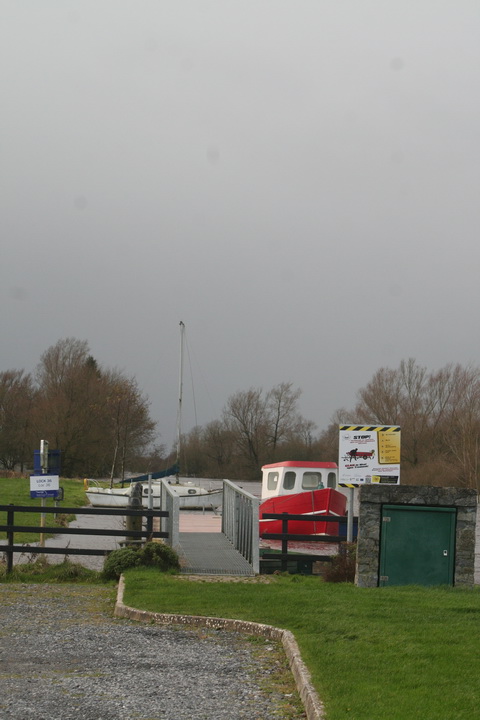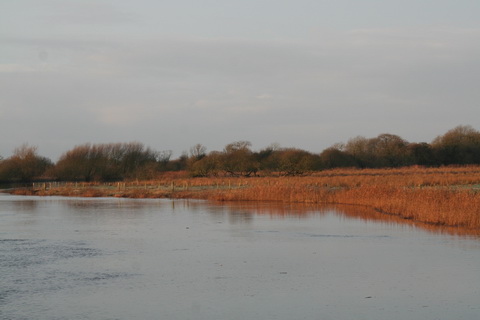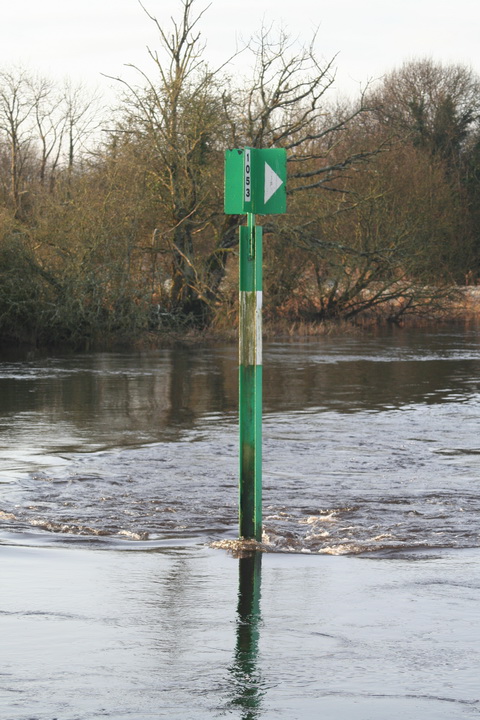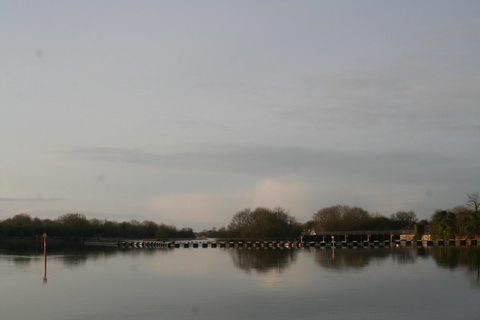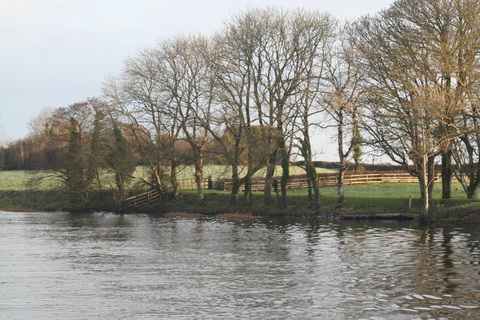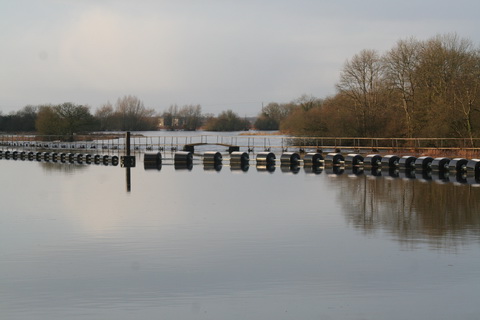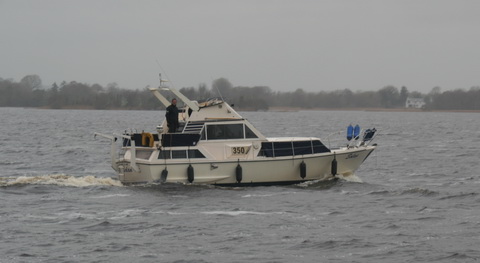[This account of a journey by Grand Canal passage-boat appeared over three issues of the Dublin Evening Packet and Correspondent: 23 July,
2 August and 9 August 1831. The three sections have been merged here and some headings have been inserted. Question marks in square brackets denote words that were difficult to read]
The Grand Canal passage boat
On to the first lock
“We shall be late for the boat, I fear, Mr Coachman,” said I, as I put my foot on the step of one of those vehicles ‘yclept a jarvie — “we shall be late for the boat, unless you promise to drive tolerably fast.” “Yer honor, I’ll drive you faster than ne’er a coachman in Dublin, not even exceptin’ the Markis himself, long life to him; so get in, and you’ll see how I’ll rowl you along.”
We left the steps of the hotel, and for a little time proceeded with great celerity; but the horses soon slackened their pace, and got into a jog-trot at the rate of about five miles in four hours. “Come, coachman,” said I bawling at him out of the window, “this will never do; you promised to drive in a more expeditious manner.” — “Arrah, what way would you want a man to dhrive? — pay-dish-us indeed! You would dish us, sure enough, and want me to kill the poor bastes all out: may-be it is the devil’s own pace you’d like to be dhriving at, but no matter, all in good time,” muttered the fellow to himself, “you’ll be going that road before long.”
“Why, man, we shall certainly not reach Portobello harbour before the boat leaves, unless you get on quicker; I have been told she sails at two o’clock, and now it wants but eight minutes of the time.” “Sails! Och, thin, it’s fine sailing you’d have on boord that same packet, and grate canvass there is in thim same sails; for they are all made of horse skin, agra[?], and put on eight legs, and there you’ll see them walking on, one after the other, like two little grogeens of turf [?].” “Surely,” said I, in something like despair, “the boat will be gone.” “Gone! Never mind that, yer honor; I was never late for the boat but once, and then she went down to the bottom; so that even if I’m late itself, may-be you’d be saved the throuble of being dhrowned. But, hit or miss, I can drive you on to the first lock, and then you’ll be easy, for I can overtake thim spalpeens of horses they have under the boat at any time.”

Portobello to first lock (OSI 6″ ~1830s)
Accordingly, at the first lock, which is about a mile and a half from Portobello, did my facetious jehu deposit myself and portmanteau, safe and sound, on board the Passage Boat, wherein I was to be stowed for the night, coachy charging, of course, five shillings more for the additional drive.
The delights of west Dublin
The scenery along this part of the canal is particularly interesting. A row of very fine beech trees, now attained to their full growth, is planted on each bank, and the overhanging branches present a delightful retreat from the summer’s sun to the pedestrian rambler, while the winter’s blast loses much of its force as it spends its fury against these formidable barriers.
The country, on the left hand, is richly cultivated; the fields, beautifully green, are interspersed with groves waving with thick luxuriant foliage. Neat villas, the summer residences of our Dublin citizens, are numerously spread over the landscape; two or three spires of churches, the tops of which are seen rising above the other buildings, present a variation of character to the surrounding prospect; while that splendid and gorgeous line of mountain which separates the counties of Dublin and Wicklow, glowing now in all the loveliness and true nobility of mountain scenery — a ray of light breaking forth from beneath a cloud, and exhibiting to view a deep and rugged or some cottage before observed, now lying in thick shadow awful amidst its grandeur — gives a finish to the back-ground of the picture, but seldom seen throughout nature’s kingdom.
The [presumably first-class] passengers
Our company was variously composed. We had Lord R—s, who told us he had been “thravelling in that boat, man and boy, these forty years, and never met with an accident except one” — and this he related, for the purpose of quieting the fears of a nervous lady, a passenger in the boat for the first time, and who was accompanied by a sick child.
“I’d tell you how it was, ma’am,” said he, “the boat came into a lock, and by some mismanagement or other she turned upon one side, and down she went just like a stone to the bottom; and myself would have been drowned as sure as gob[?], for I was thravelling in the boat that same time, only I was on the bank. Oh, it was well I wasn’t in her, or there would have been mille murther.” “And were any persons drowned?” asked the lady with a terrified countenance, as the boat just then came whack against the side of a lock. “Indeed there was about six and twenty,” rejoined the Peer; “but don’t make yourself uneasy, for the same thing won’t occur again.”
I am unable to identify Lord R— (the final s is not used in later mentions and may be a mistake): I cannot find anyone called Lord R— resident in the west of Ireland at the right time. Michael Dillon, 12th Earl of Roscommon, might be possible, but I have no information about where he lived.
Besides the Lady and the Lord, we had two Roman Catholic Priests, red hot from the College; a publican, and small sugar dealer from the town of Banagher; a cloth merchant from Tuam; two young ladies, one the wrong side of forty, who set up for literati, and gave us during the evening divers dissertations upon books, picked up chiefly from reviews; three Trinity College men, one of them in all probability a pupil[?] of Tom Gannon’s, for he was redolent of puns — and, though last, not least, five Misses Blake, returning after an unsuccessful winter in Dublin, spent fruitlessly in one of the best boarding houses in the city.
Could the Misses Blake have been the daughters of Pierce Blake of Hollypark?
A run upon the banks
“Ho!” said one of our Academicians, looking out of the window, “there is a great run upon the banks.” “Run upon the banks!” exclaimed the elderly-young lady, “run upon the banks! I trust not, for I have five hundred pounds in the Galway Provincial: did you say, Sir, it was a great run?” “Never saw such a run, ma’am, in all my life; the seven-leagued boots never made such desperate haste; if the banks stand it, it’s a wonder: in my opinion they will certainly break; at all events they must receive a great shake. No such pressure has occurred to them these many years; and all caused by one or two individuals.”
“That O’Connell ought to be hanged: I was once a great advocate of his, but I have lately changed my opinion entirely; he ought to be hanged, and well hanged, for I am quite sure he is at the head and tail of the whole business. Oh dear! oh dear! I wish I was in Galway — my five hundred pounds! Do you think, Sir, I shall get there in time to draw my money? — not that I care much about so small a sum, for I have a good deal more some where else — no bad thing, I promise you, for some deserving young man, and I am particularly fond of College men — but then one would not like to lose even five hundred pounds. Oh dear! what luck I had not to keep the gold in my snug leather bag; but they persuaded me I would get two per cent in that nasty, odious Galway Bank. I wish it was in the fire before I put my money there.”
“Why, Ma’am,” said our punster, “that would be a burning shame; and though I am glad your wishes are warm towards the Provincial Bank, yet, just now, they are a little too fervent. Your zeal for O’Connell, also, is scarcely warrant-able; and though it might be a high joke to see him standing sus per coll [suspendatur per collum: let him be hanged by the neck], yet I scarcely think he would find much pleasure therein, poor fellow — particularly as, in this instance, his execution would take place somewhat undeservedly, as the run is caused not by him, but by my friend, James B—, who has been trying to overtake the boat for the last ten minutes, and made such desperate efforts, I thought the bank of the canal would surely give way. And here he comes himself, puffing and blowing like a broken-winded horse.”
“Ugh, ugh! By the goodness gracious!” said James B—, “by the goodness gracious! I thought I’d never overtake you: this infernal boat goes so fast when one does not want it. John Denis Browne, how are you? — glad to see you, by the goodness gracious! how is your friend Sandy Pry, eh? hear from him lately, eh? …”
This John Denis Browne may be the son of George Townsend Browne; if so, he was “admitted to the degree of Bachelor of Arts” in 1830 (Freeman’s Journal 20 July 1830) and was studying divinity in 1831, later becoming curate of Penzance, vicar of Braintree in Essex (Limerick Chronicle 2 June 1852) and author of Satan Enters the House prepared for his Reception. He died, aged 56, in 1864 (Chelmsford Chronicle 19 February 1864). His youthful doings, or alleged doings, and those of James B— [whom I cannot identify], were covered in several articles, perhaps intended to be humorous, in Irish newspapers in 1830 and 1831, at least one signed by Sandy Pry. James B— also appears in several of the articles, whose author seems to have been opposed to Daniel O’Connell and to the Roman Catholic interest.
“… Quite right, quite right; a great blackguard; I perfectly agree with you. Have you signified your intention of leaving town to the proper quarter? We men of fashion, taste, elegance, and birth, should have our several movements duly certified to the public. My Lord, How d’ye do? In your old place near the door, I see. What were bullocks to-day in the market?”
Lord R—’s skills
“Oh! what would they be but bullocks? Maybe it’s bullsheens you’d have them,” replied the Peer, “and mighty chape they were entirely. I had fifty head, and I sold them for an ould song, I may say. Every thing is down in the country, Sir — every thing is down except the Terries; and, by my sowl, they’re raising themselves high enough. Shure they had the impudence to visit my own place; but if I could ketch ’em, I’d engage to make ’em civil: I think they might let me alone, at any rate; for shure there’s not an easier man in the country than myself, and I’m among them, as I may say. But it’s all the fault of the change of currency: sorrow much luck I had since these new tinpennies came into fashion.”
“By the goodness gracious, I do not know what will become of us — the rascals will have the whole country to themselves by and by. However, I am glad to see so many troops quartered throughout the country.”
“Did I ever tell you the story of the Dragoon Officer that came into my yard one day, looking for the smith to put a shoe upon his horse?”
“I heard the thing, but I don’t know whether it was from you.”
“Well, no matter, I’ll tell it to you again. You see there was a great hunt in the neighbourhood of my place, and one of the Dragoon Officers from Loughrea lost a shoe from his horse, and he came into the yard to get the smith to put it on for him. ‘Where’s the smith?’ says he. ‘Faith I don’t know,” says I, for it was to myself he was spakin, ‘he’s not in it at all events, but what do you want iv him?’ ‘Oh, what ud I want iv him,’ says he, ‘but to put a shoe upon my horse, to be shure; but as he’s not here, there’s no use in waiting’ and with that he was turning away his horse’s head. ‘Whe-then,’ says I, ‘you’re both of you a fine pair of bastes, and by my sowl it ud be a mighty quare thing to let you go off without getting shod: and may-be I could do the job for you myself.’ ‘Whe-then,’ says he, ‘I’ll be for ever obliged to you, and I’ll give you something for your throuble besides.’ With that I got Larry Moore’s apron — that’s the smith, you know — and I shod the horse for him, nater than Larry could ever do it. ‘Now,’ says I, when the job was done, ‘I have some interest with the butler at the big house, and iv you come up, I’ll get you something to ate.’ ‘Faith,’ says he, ‘you’re the boy for my money, and you’re a Trogien every inch of you.’ ‘Well,’ says I, ‘do you go round to the hall door, and I’ll go talk to the butler.’ And I sent, sure enough, and I orthered up a fine lanshin, and there I was sittin at the head of the table by the time my gentleman came in. You never saw a man so struck all iv a heap as he was, when he found me out.”
Dinner on board
Dinner now made its appearance, “smoking on the board.” A leg of mutton ushered in the train, gracefully leading after it chickens and bacon, and an immense piece of boiled beef and cabbage.
“Where is my porta, gul?” said a fat-faced, ruddy-visaged gentleman, one of our Reverences from the College. “Where is my porta that I paid for?” “The Captain is drawing the cork, Sir,” said the smiling Hebe; you shall have the porter directly.” “I declare I’m chouking with thurst; till the Kiptin to send me in my bautle, and I’ll draw the cok myself. The best way to drive[?] a cok, gentlemen, in a hurry is to push it down.” “Sir, I’d throuble you for another shliver of mouton,” asked our small grocer from Tuam; “it ates remarkably well and thick.” “The pleasure of a glass of wine, ma’am, with you, if you plaise. Phoo, this is nothing but slow water; it’s a grate shame for Mister Blake not to give better wine in the boat;” and so
We eat, and drank, and wined, and then
We wined, and drank, and eat again.
Literary Conversation
When strangers assemble together for a short period, there is generally a feeling among them to make as fine an appearance as circumstances will permit. The tailor’s apprentice, who has just untwined his legs from off the board, and stretches them for the first time in his master’s service, to collect some outstanding debts, or respectfully solicit future orders, attempts the fine gentleman, and frequently succeeds as well as the man who is born one, as the saying is; and the grocer’s boy, emerging from the place of figs and raisins, his Sunday coat well brushed up, his hat smoothed down, and hair curled gracefully on both sides of his cheeks, sets off on his errand for custom, with the fixed determination of doing the agreeable and sweet, to the full extent of sugar-candied excellence.
The man who has learned enough to prove him an ass at the University, delights to exhibit his parts, and make the vulgar stare; and the little pert Miss, just let loose upon the world, and about half a year from the boarding school, rejoices to shew off her accomplishments and tastes to the best advantage — and having been a short period with an aunt in the city, she prates learnedly of the last new novel, scientifically of the last new singer, hobby-horsically of the riding-school, informs you she has taken lessons in drawing, is a famous hand at a sketch, and a very Titian in her colouring, tells you she has been at the play, and can play on the piano-fort.
Our conversation was as varied as our company. The five Misses Blake chattered and tittered, and tittered and chattered, and flattered and fluttered, and fluttered and flattered: when one began to talk, the rest began to talk; the wagging of the tongue of one was the sure signal for the rest to begin; but the two literary ladies fairly beat them wholus bolus out of the field. The comparative merits of Mesdames De Genlis and De Sevigne occupied a good portion of their discussion, which at one period waxed rather fierce. The decryer of Madame De Sevigne’s works informed us “that, indeed, she had no right to speak disadvantageously of De Sevigne’s writings, as she was paid the compliment of being told her own style was very similar.”
After a short digression upon schools, during which the five Misses Blake were able to edge in a few words, here and there, particularly the schools at Portarlington, calling it the Athens of Ireland, they returned with redoubled violence to Fenelon, Bossuet, and the Martyrs in France, whom they took to pieces more mercilessly than even their cruel persecutors; then they crossed over to Moore and Scott, eulogised Lord Byron, great poet, noble writer, exalted genius, pity he died!! At last they settled down upon Lady Morgan: concerning the place of whose education they were strangely at variance.
“Pardon me, ma’dam, she was educated in a Charter-school.”
“Excuse me, ma’am, with great submission to your superior information, she was brought up in the Duchess of Rutland’s family, and afterwards became Governante to the young Ladies Manners.”
“My information, ma’am, was from the very best authority.”
“None can be more surely depended on than my account, ma’am. Surely we all know that her father was a gentleman of fortune, descended from one of the most ancient families in Ireland; and not likely to send his daughter to a Charter-school. His name was M’Keon.”
“There, ma’am, you see how correct your information is: every one knows her father’s name was Owenson; but we’ll ask Lord R—. Lord R—, who is Lady Morgan?”
“By my sowl,” snored out the Peer, “I wish you wouldn’t be disturbing me, for I’m fast asleep.”
Sleeping together
The gentlemen now put on their night-caps, and variously exerted themselves to secure some comfort for the night — Lord R—’s nasal organ giving forth the solemn sound that tells the midnight hour, whilst the ladies endeavoured to look as amiable and interesting in divers mob-head-gear, as they severally might. Two of the male party placed themselves at full length on the table, esteeming, no doubt, that the convenience of the company was but a small matter, in comparison to the enjoyment of having their figures displayed to the best advantage, and their necks stretched before their due time, as our man of puns remarked.
Others took the ease of a berth on the floor, choosing the softest spot, whilst some laid down their heads on a pillow put upon as much of the table as they could obtain, and snored away the time in most pig stye-ish melody. Nothing seemed to disturb the rest of the passengers, except a few abrupt exclamations, now and again, such as — “Sir, I’ll thank you to keep your foot out of my pocket!” — “Pray, Sir, don’t tread on my eye!” — “The next time you give a kick, Sir, if it be somewhat lighter, you will confer a favor!”
The five Misses Blake, after making various wonderful efforts to engage the attention of our College men, including our punster, from whom the others seemed to take their cue, at last settled down into sleep, which was considerably accelerated by the punster having observed that he hated a Bleak retreat. The young ladies set up as pretty a quintetto as the imagination of a snorer well could fancy.
Disturbance in the night

Grand Canal: Robertstown to Shannon Harbour (OSI 25″ ~1900)

Killagally Glebe (OSI 6″)
At Philipstown a great influx of passengers poured in upon us, about half past two o’clock in the morning, just as I was adjusting myself for a sleep; they were returning from the Assizes of the King’s County. — These were divers gentlemen from the neighbourhood of Banagher, wending their way homewards after the toil and turmoil of their necessary attendance upon the law courts; and as they esteemed it futile to attempt a sleep themselves, they were desperately bent on preventing all others from enjoying even that disturbed repose which the very small convenience of a crowded boat could admit. An immediate ringing of the bell was fixed on, as the most notable expedient for this purpose; and this was accompanied by various calls for porter, cider, ale, Mary the maid, and so forth.
“Eh! what’s all this?” roared out James B—, suddenly awakened from a deep, sound sleep, “By the goodness gracious, we are going to the bottom. Eh, what’s this? is hell broke loose? Bedlam is let out, I believe!” “No,” said the pupil of Tom Gannon, “it is only the people discharged from the Assizes, and they are making merry on the occasion.” “By the goodness gracious though, they shall not be making merry at our expense; I’ll commit them to Galway jail. My Lord, will you get up and keep the peace? you’re a Magistrate boati.” “Pace,” replied his Lordship, “Pace: you’re more handy at the pace yourself (either breaking it or keeping it), James B—, than I am. But what can you expect from Leinsther men? They haven’t the dacency in them like us at all.”
Morning
The sun now rose in his unclouded majesty, gilding the towers and woods of Charleville, the magnificent seat of the Earl of that name, and exhibiting the town of Tullamore to our view at a little distance. The windows of the cabin were put down, some fresh air admitted, and the impurities of the past night cleansed away.
Preparations for breakfast soon began, and anticipation of a raking pot of tea, after the fatigues of the night, was by no means a small enjoyment, whilst the occupancy of the thing itself was the source of no little pleasure. The merits of divers eggs were entered into with a gout seldom exhibited any where else; and sundry pieces of bread were sent to be toasted from one end of the table, which, upon their return, were most religiously waylaid and devoured by those through whose hands the toast should pass to reach the sender.
Our literary ladies warmly discussed sundry cups of tea, with even greater heat than the comparative excellencies of Fenelon and Bossuet, digesting the matter with more apparent good will; and agreeing fully upon this, that Nott, Fergusson, and Company had been of great service to the tea trade of Dublin, as they were now able to get their favourite beverage full three halfpence an ounce cheaper than before their establishment was set up.
Journey’s end
As we passed Killigally, John Denis Browne, the notable, gave us an entire relation of his misfortunes in that quarter, and almost charged James B— with being the author of that egregious hoax, which brought him so fruitlessly from his alma mater, and led, in pursuit of exaltation and honor in the church militant, to the prejudice of his studies and lucubrations for the benefit of his country. The five Misses Blake condoled with the misfortunes of so sweet a youth, at the same time congratulating him, by way of comfort, on the splendid address which he got up for himself upon leaving College, and the numerous and respectable signatures affixed.

Killagally Glebe north of the canal (OSI 6″)
We discharged our cargo of Banagheronians at Shannon-harbour, and soon the noble river bearing that name greeted our delighted eyes. A wooden bridge, upon which the horses tread who tow the boat, has been built in this place. Here the stream, though not rapid, always flows majestically.

Shannon Harbour (OSI 6″)
I got into the steamer which plies between this and Killaloe, and bid farewell to my boat companions, leaving the two literary ladies hard again at De Genlis and Madame De Sevigne; and the youngest Miss Blake, at last successful in attaching to herself the wayward fancy of John Denis, by her merciless application of the Blarney stone.
This account is of interest for two reasons. First, it is one of a number of articles featuring John Denis Browne and James B—; it would be interesting to know who wrote them and why they were published. They seem to have been written to promote Browne’s interests; why did they deserve publication?
Second, it provides some useful information about the canal passage-boats: boarding away from regular stations, meals, sleeping. In particular, it confirms that the Shannon steamers, which met the boats from Dublin, did not enter the canal but took passengers aboard on the river, perhaps downstream of the bridge. Was there a quay or wharf to make that easier?












